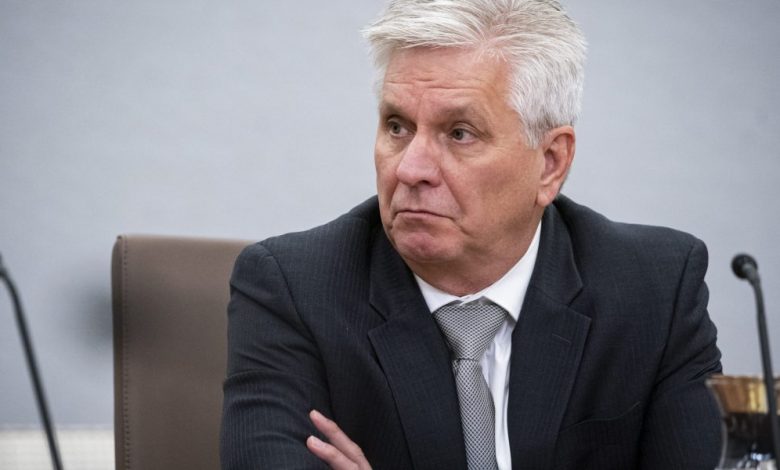Fed official says crypto is ‘risky’ and ‘speculative’

It’s been a rough 18 months for many cryptocurrency investors, but Federal Reserve Governor Christopher Waller says they should have seen it coming.
“If you buy crypto assets and the price eventually goes to zero, please don’t be surprised,” Waller said in a Friday speech at a Global Interdependence Center conference in San Diego. “And don’t expect taxpayers to socialize your losses.”
Crypto prices have rallied this year after the crypto winter helped trigger industry-wide bankruptcies and took the price of the world’s leading digital asset, Bitcoin, down 64% in 2022. Bitcoin is up over 30% year-to-date, and some believe the run will continue. Cathie Wood, CEO of ARK Invest, argues that Bitcoin will be a source of stability for people in countries struggling with inflation, economic crises and political instability.
“Where do these people go to insure themselves against an implosion of their purchasing power and wealth? It’s something like bitcoin. Bitcoin is an insurance policy,” Wood told Bloomberg last week, adding that she expects increasing Bitcoin adoption to push the cryptocurrency’s price to $1 million by 2030.
But the Fed’s Waller sees cryptocurrencies in a different light, arguing Friday that they have no intrinsic value and are nothing more than “risky” speculation — “like a baseball card.”
“To me, a crypto asset is nothing more than a speculative asset,” he said. “If people believe that others will buy it from them at a positive price in the future, then it is trading at a positive price today. If not, its price will go to zero. If people want to hold such an asset, then do it. I wouldn’t, but I don’t collect baseball cards either.”
Under Chairman Gary Gensler, who once dubbed the crypto industry the “Old West,” the Securities and Exchange Commission cracks down on crypto companies that violate U.S. regulations or offer products that are not properly registered. On Thursday, Gensler reached a $30 million deal with crypto exchange Kraken for its staking feature, which offered users rewards for locking their crypto to validate Proof of Stake blockchains. And on Friday, he doubled down on his plans to increase regulation in the crypto sector.
“This is largely a non-compliant area and they mix customer funds with their trades,” he said said Bloomberg of crypto exchanges that offer staking services. “We are not letting the New York Stock Exchange also run a hedge fund and trade on the exchange. Why should we do this here?”
In a bid to increase pressure on the crypto industry, Fed Governor Waller, in his Friday address, sent a warning to banks looking to get into cryptocurrencies, saying he was concerned it would “pose an increased risk of fraud and fraud, legal uncertainties and the proliferation.” inaccurate and misleading financial information.”
“Although I don’t care if people make risky investments or engage in risky deals, banks and other financial intermediaries need to conduct their activities in a safe and sound manner,” he said. “A bank dealing with crypto customers would need to be aware of the customers’ business models, risk management systems and corporate governance structures to ensure that the bank is not left alone in the event of a crypto meltdown.”
Despite Waller’s warnings about the risks of cryptocurrencies and even the potential for “spillovers” into the financial system amid a meltdown, the Fed governor doesn’t believe the entire crypto industry is groundless. He argued that distributed ledger technology – which forms the basis of cryptocurrency blockchains – could be useful for a “wide range of data management problems”. And smart contracts, a type of transaction protocol running on the blockchain, could be used to speed up securities transactions on the stock exchange.
“While it is vital that we ensure that the risks to financial stability associated with crypto assets are mitigated, it is important that we keep an eye on the different parts of the crypto ecosystem as the debate over whether and how crypto should be regulated continues. he said. “This will ensure that we do not unduly constrain the development and potential future exploitation of the positive properties of the crypto ecosystem.”
Learn how to navigate and build trust in your organization with The Trust Factor, a weekly newsletter exploring what leaders need to succeed. Login here.



